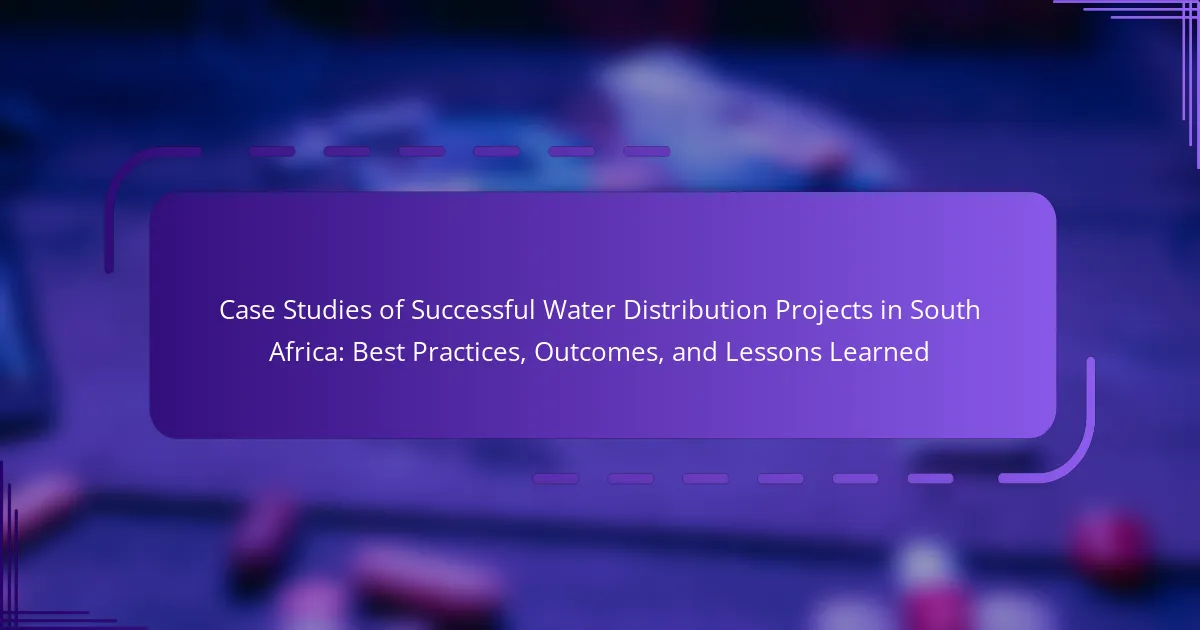Successful water distribution projects in South Africa are characterized by effective planning, strong stakeholder engagement, sustainable practices, reliable infrastructure, and the incorporation of technology. These projects focus on meeting community needs while ensuring financial sustainability and continuous evaluation for improved outcomes. Key practices include comprehensive assessments, modern technology utilization, and transparent financial management, which enhance […]
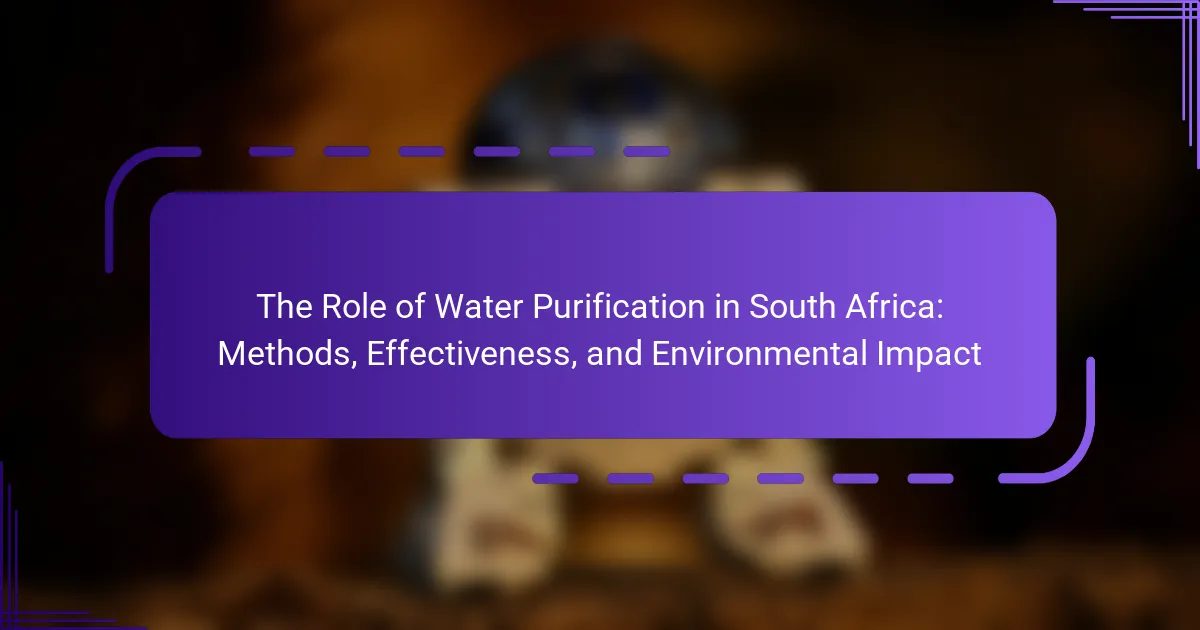
The Role of Water Purification in South Africa: Methods, Effectiveness, and Environmental Impact
Water purification is a vital process in South Africa, essential for ensuring access to safe drinking water amidst significant water scarcity and contamination challenges. The article examines various purification methods, including filtration, chlorination, and reverse osmosis, which are employed to eliminate harmful pathogens and pollutants from water sources. With over 30% of South Africans relying […]
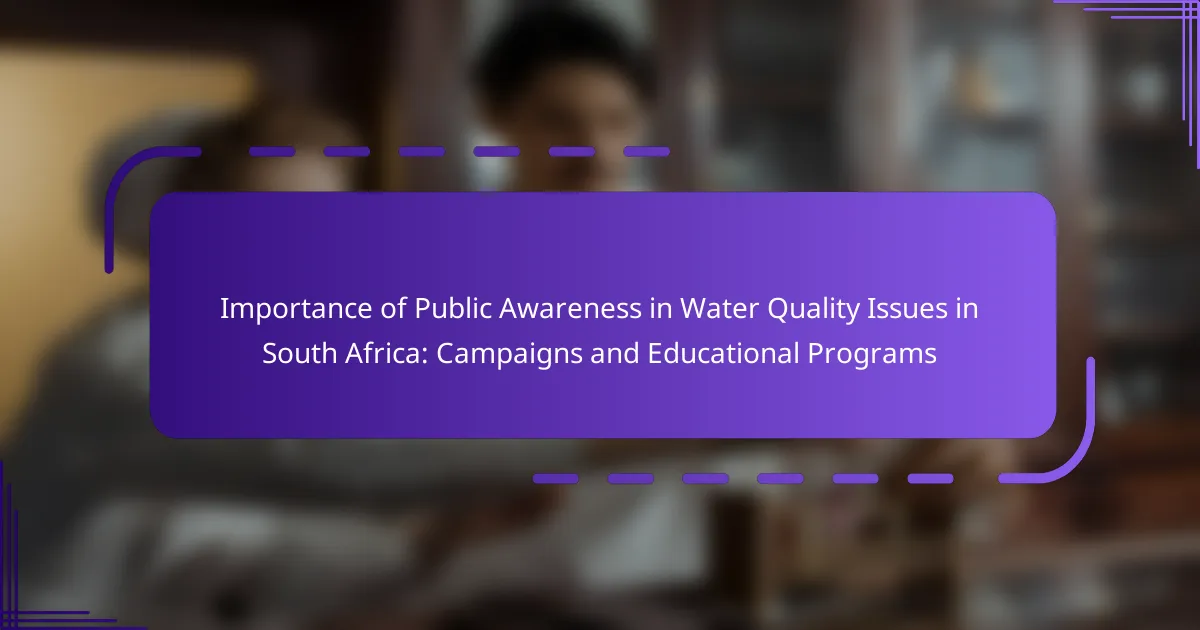
Importance of Public Awareness in Water Quality Issues in South Africa: Campaigns and Educational Programs
Public awareness is essential for addressing water quality issues in South Africa, where contamination from agricultural runoff, industrial pollution, and inadequate wastewater treatment poses significant health risks. High levels of nitrates, phosphates, and harmful pathogens in drinking water highlight the urgent need for informed decision-making regarding water use and conservation. Educational programs and public campaigns […]
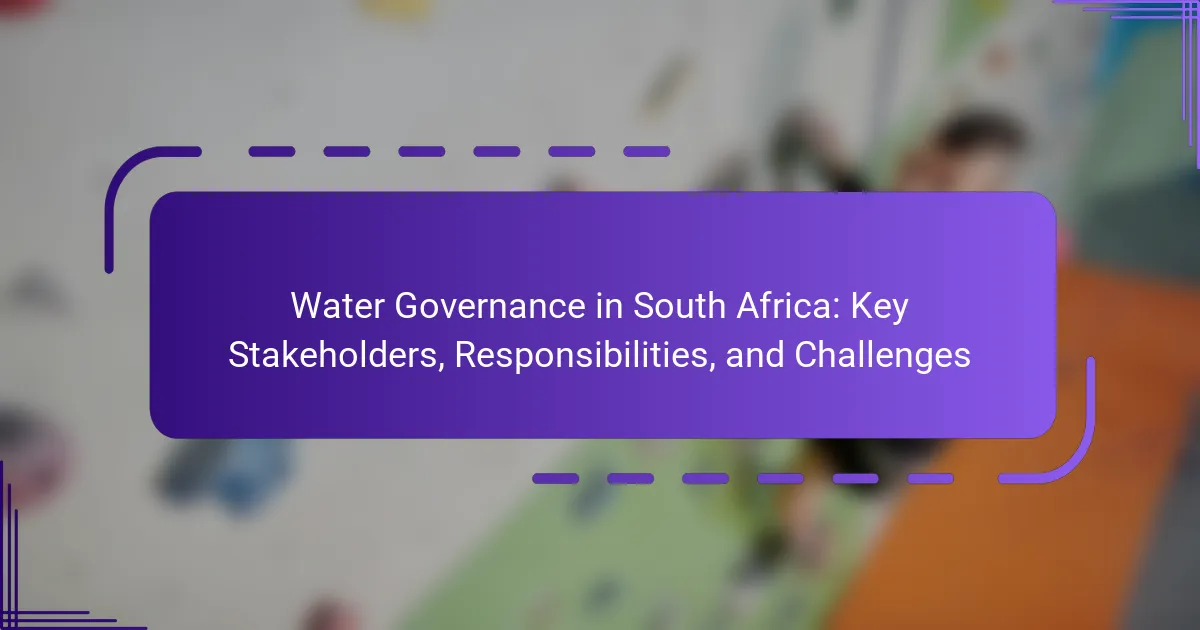
Water Governance in South Africa: Key Stakeholders, Responsibilities, and Challenges
Water governance in South Africa involves the management of water resources through policies, regulations, and practices overseen by the Department of Water and Sanitation. Key stakeholders in this governance framework include government entities, local communities, and the private sector. The article addresses significant challenges such as water scarcity, pollution, inadequate infrastructure, and socioeconomic disparities that […]
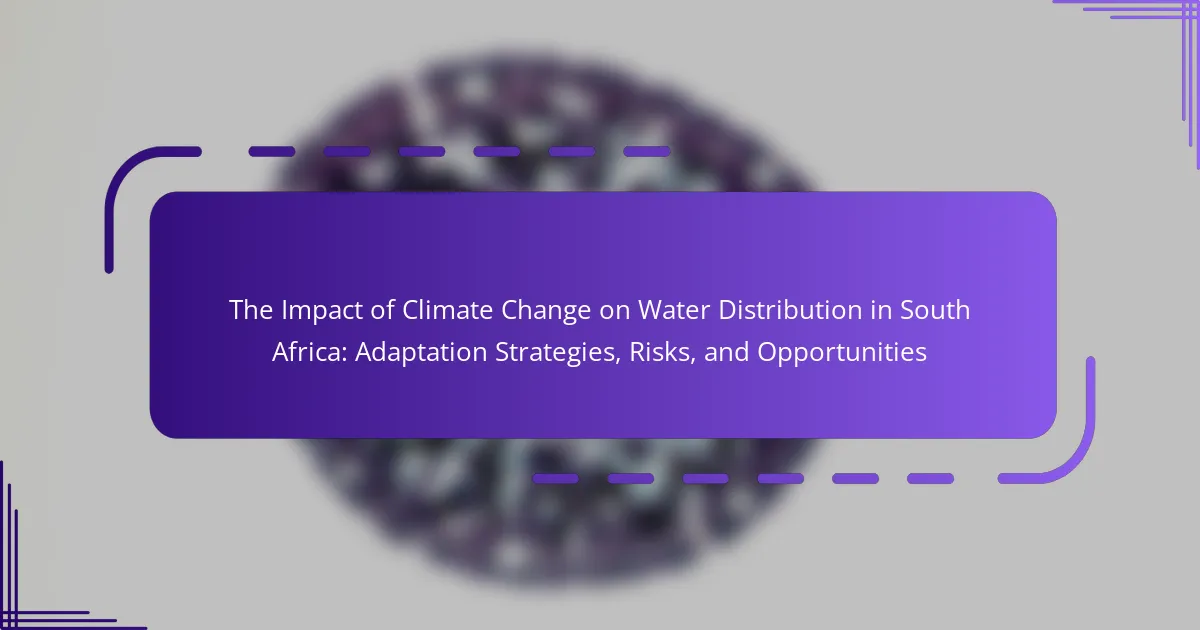
The Impact of Climate Change on Water Distribution in South Africa: Adaptation Strategies, Risks, and Opportunities
Climate change is significantly impacting water distribution in South Africa, leading to altered rainfall patterns and increased temperatures. These changes result in more frequent droughts and intense rainfall in different regions, disrupting freshwater availability and threatening food security and economic stability. Adaptation strategies such as improved water management practices, efficient irrigation systems, rainwater harvesting, desalination […]
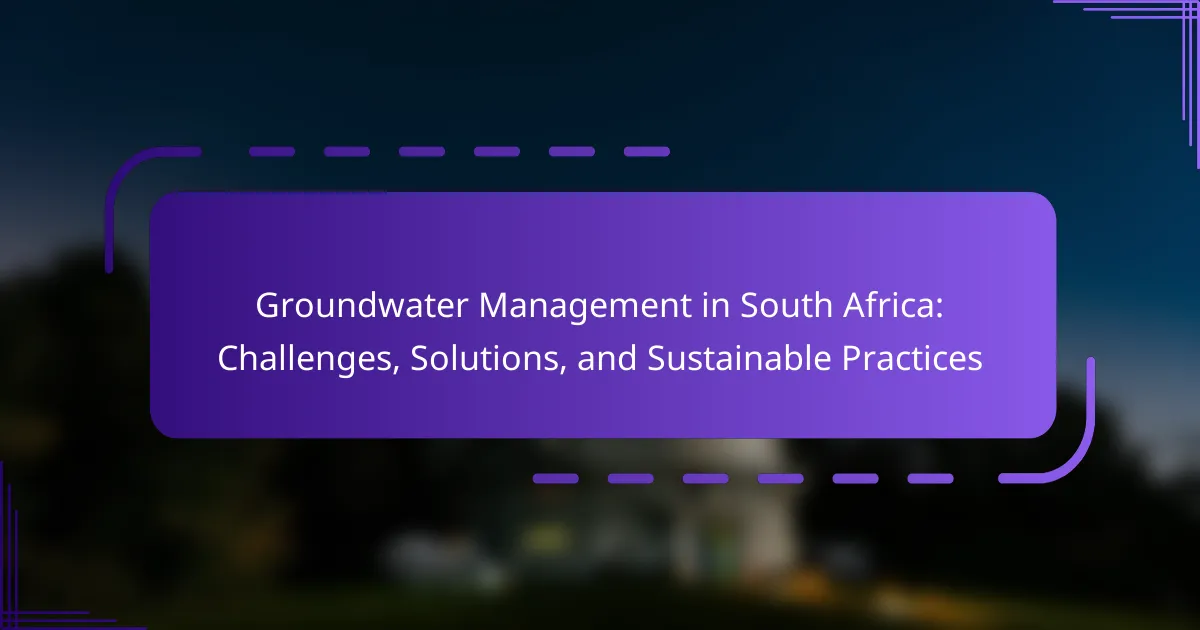
Groundwater Management in South Africa: Challenges, Solutions, and Sustainable Practices
Groundwater management in South Africa involves the systematic assessment, monitoring, and protection of groundwater resources to ensure their sustainable use. With approximately 60% of the population relying on groundwater for drinking and agriculture, the country faces significant challenges, including water scarcity and pollution. The National Water Act of 1998 serves as a legal framework that […]
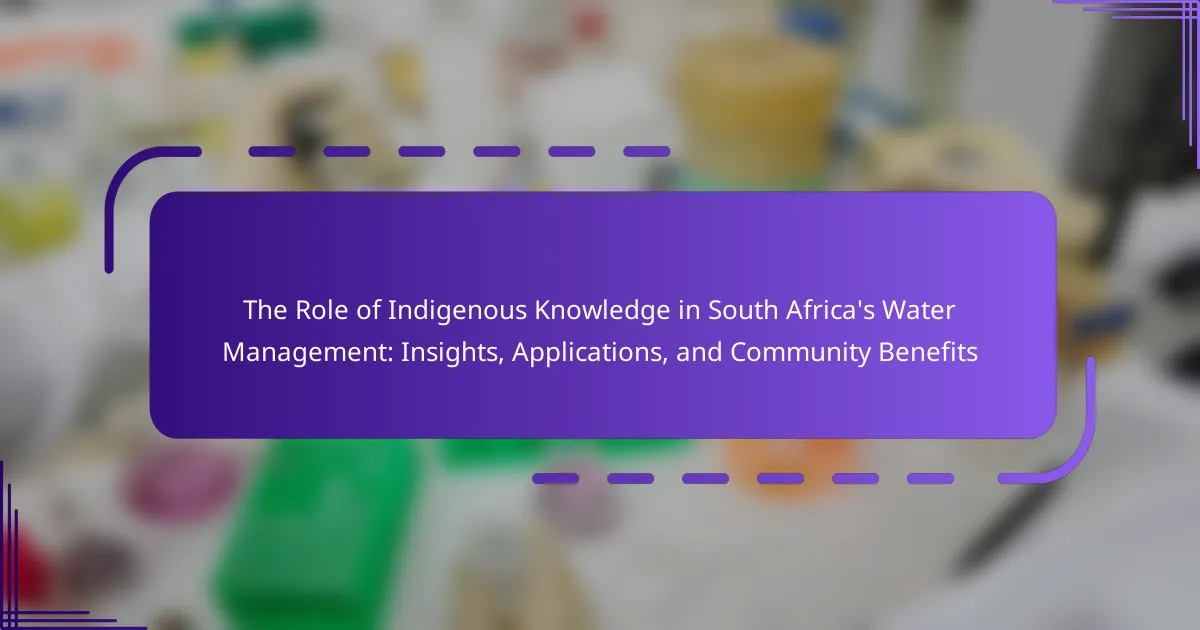
The Role of Indigenous Knowledge in South Africa’s Water Management: Insights, Applications, and Community Benefits
Indigenous knowledge is a critical component of water management in South Africa, encompassing traditional practices and beliefs that have been passed down through generations. This knowledge provides valuable insights into local ecosystems and water sources, promoting sustainable water use and conservation efforts. Research indicates that integrating indigenous practices, such as traditional irrigation and water harvesting […]
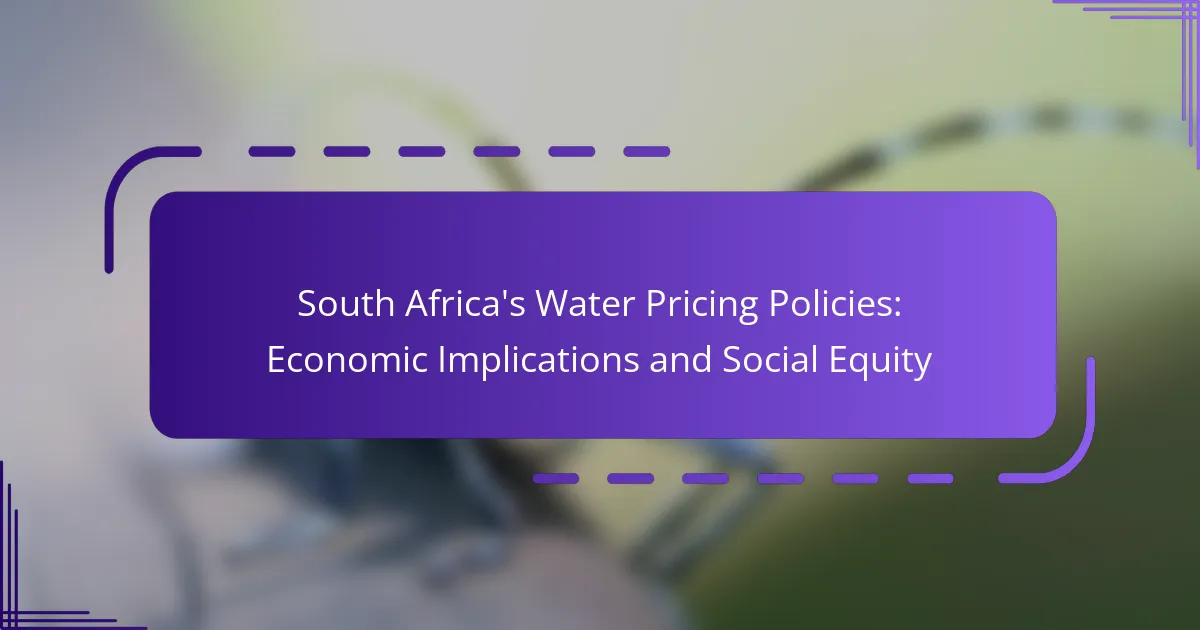
South Africa’s Water Pricing Policies: Economic Implications and Social Equity
South Africa’s water pricing policies are designed to promote efficient water use and ensure equitable access, guided by the National Water Act of 1998. These policies reflect the true costs of water provision, including infrastructure and environmental sustainability, while varying across regions based on source and usage. The government has implemented tariffs and subsidies to […]
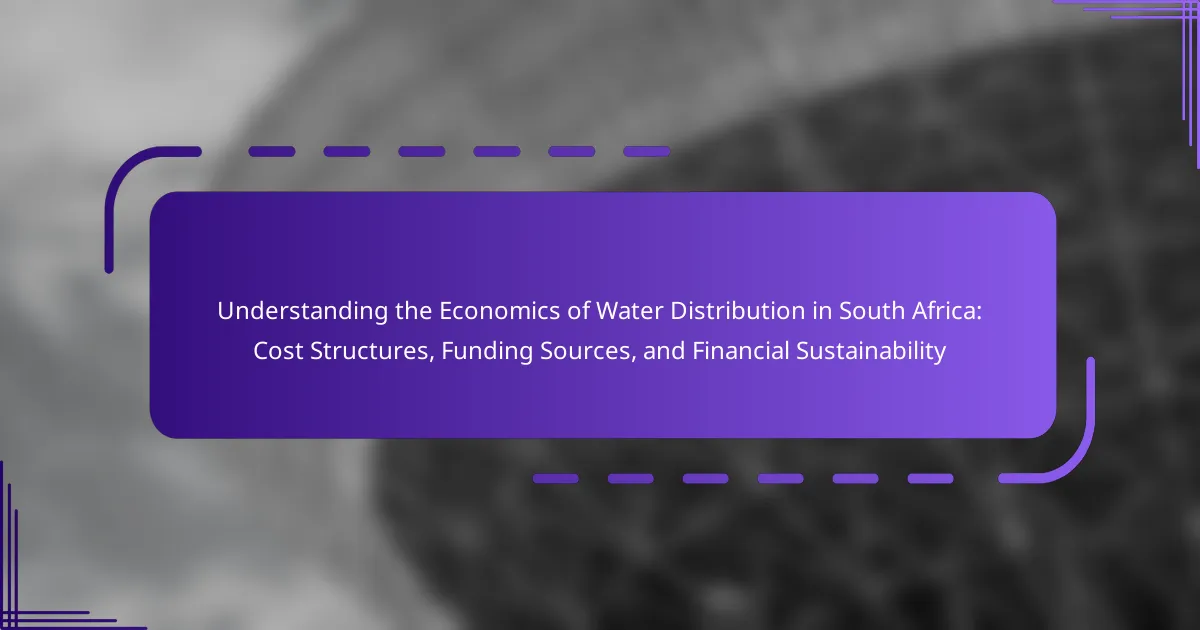
Understanding the Economics of Water Distribution in South Africa: Cost Structures, Funding Sources, and Financial Sustainability
The economics of water distribution in South Africa involves key components such as cost structures, funding sources, and financial sustainability. Cost structures encompass expenses related to water treatment, transportation, and infrastructure maintenance, while funding sources include government allocations, tariffs, and private investments. Financial sustainability is essential for ensuring long-term access to quality water, as highlighted […]
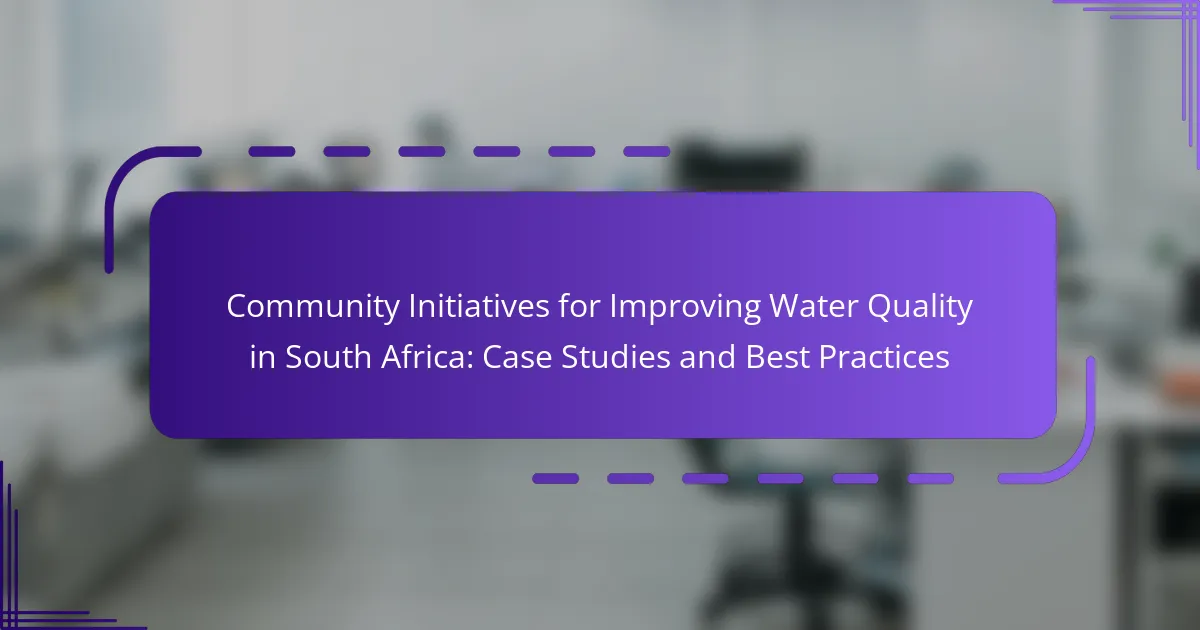
Community Initiatives for Improving Water Quality in South Africa: Case Studies and Best Practices
Community initiatives aimed at improving water quality in South Africa encompass various local programs focused on education, pollution reduction, and sustainable practices. Key projects include the Water and Sanitation Services project in Cape Town, which empowers communities in managing local water resources, and the Umgeni River Catchment Management project, which involves local stakeholders in water […]
